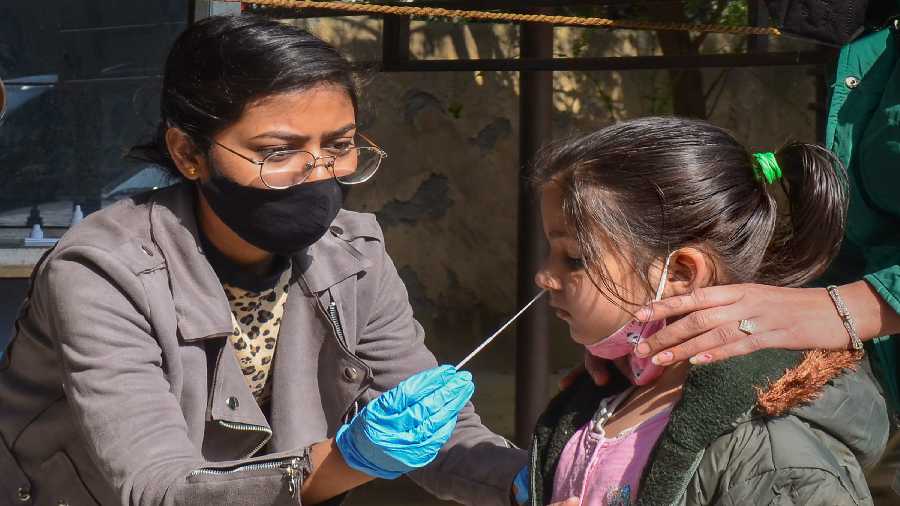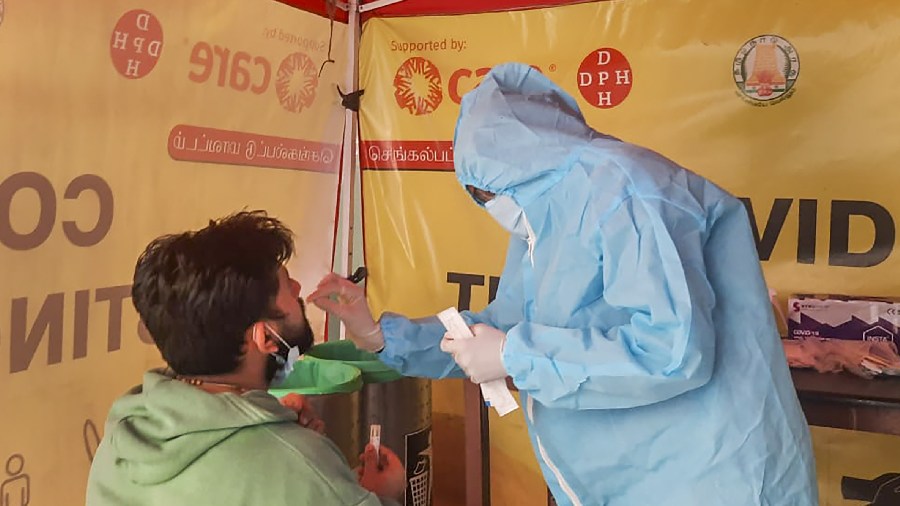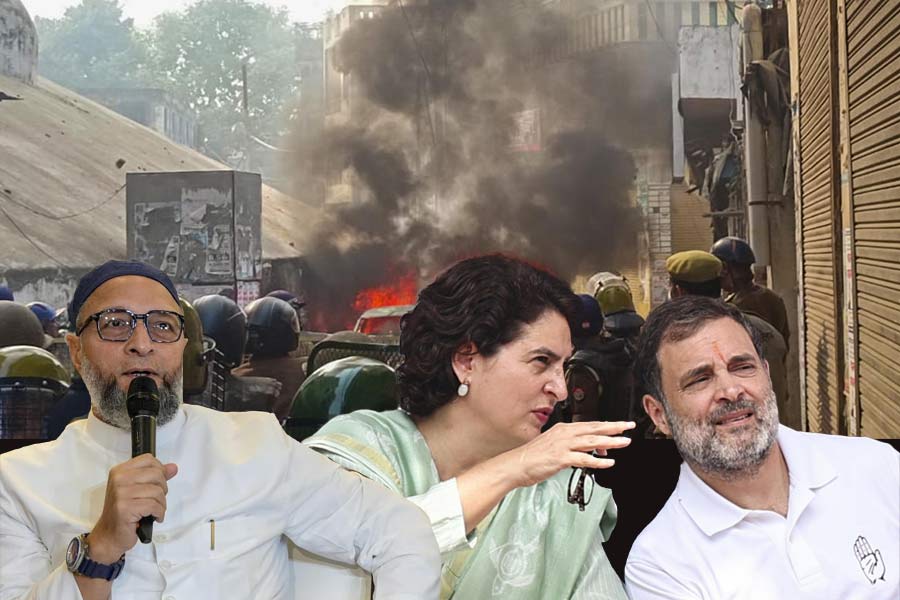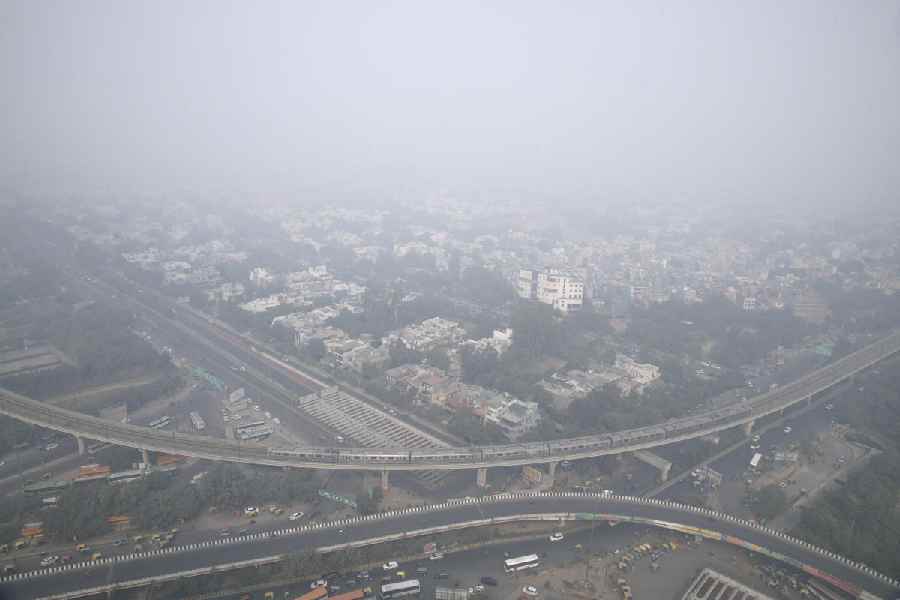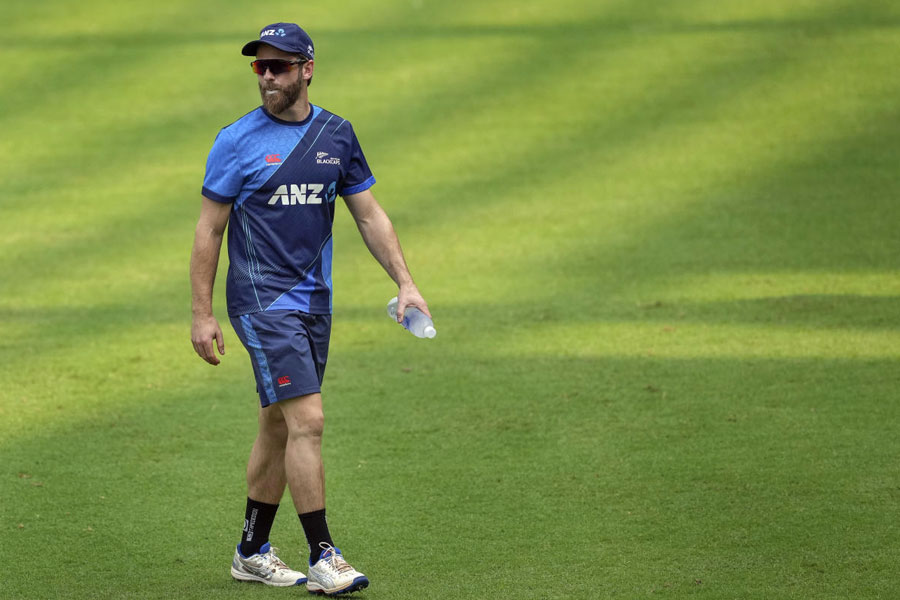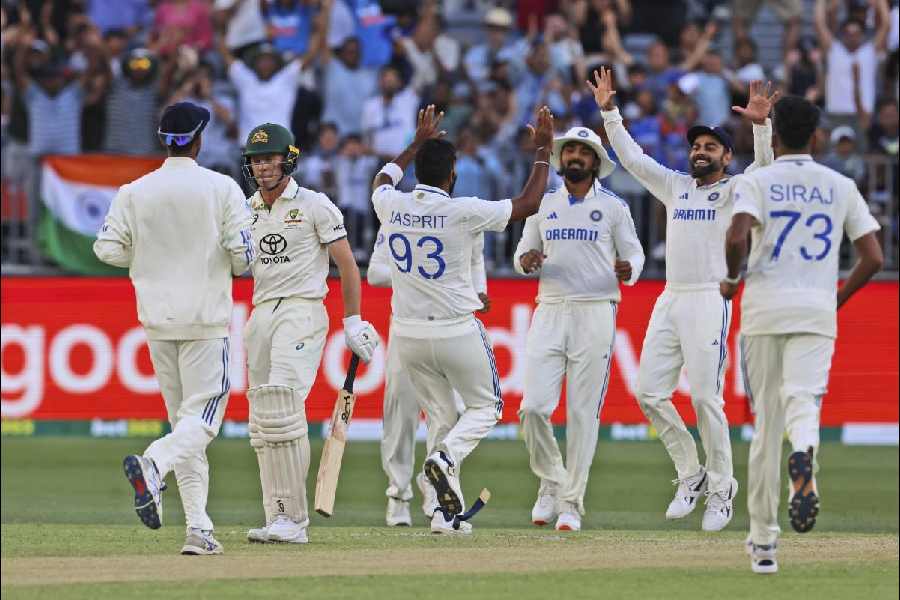Death rates among hospitalised children with severe Covid-19 in India were “much higher” than those observed in high-income countries, researchers said on Tuesday.
The findings suggest that children hospitalised with severe Covid-19 in healthcare settings such as those in India might require “special attention”, the researchers said, speculating that possible disparities in healthcare resources might explain the high mortality.
The study, which covered over 2,000 children hospitalised for Covid-19 through India’s three surges, has measured high mortality levels ranging from about 12 per cent to 18 per cent across various categories of severe Covid-19.
Two-thirds of the children covered also had other underlying health disorders.
In children who had multi-system inflammatory syndrome (MIS-C), a rare but potentially deadly Covid-19 complication in children, the researchers documented a mortality rate of 18.6 per cent, nearly 10-fold the figures of 1.8 per cent to 2 per cent seen in hospitalised children with severe Covid-19 in high-income countries.
Multiple studies from across the world have throughout the Covid-19 pandemic shown that while the coronavirus can infect children as easily as it does adults, the vast majority of children remain free of symptoms or develop mild symptoms.
“Our findings do not in any way challenge those observations,” said Shinjini Bhatnagar, a paediatrician-researcher at the Translational Health Science Technology Institute (THSTI), a department of biotechnology institution, in Faridabad that coordinated the study.
“In the general paediatric population, Covid-19 remains a symptom-free or mild illness — severe disease is rare,” she said.
“Our focus was entirely on children hospitalised in tertiary care hospitals, particularly those with severe disease and co-morbidities, in whom mortality rates would be expected to be higher than those in the general paediatric population.”
A consortium of researchers from the THSTI and doctors from five hospitals in Bangalore, New Delhi and Faridabad analysed Covid-19 infection outcomes in 2,148 children, hospitalised for Covid-19 between March 2021 and March 2022. Of them, 1,090 had severe Covid-19.
The study team observed a mortality rate of around 18 per cent among children with MIS-C, 13 per cent among children who had severe acute Covid-19, and 12 per cent among children with “unclassified” severe Covid-19, named thus because they didn’t fit either of the other two categories. The researchers say MIS-C was primarily seen during the first and second waves and was rare in the third wave.
The study also noted 14 per cent mortality (12 out of 85) in children with non-severe Covid-19 who had been hospitalised, similar to the mortality rate among children with severe Covid-19, particularly in those who also had cancer or tuberculosis.
“The high mortality underscores the need for better preparedness, timely diagnosis and management of Covid-19,” the researchers said in the study, published in a medical journal, The Lancet Regional Health Southeast Asia, on Tuesday.
The researchers’ findings highlighted the possible disparities in healthcare resources between India and high-income countries.
Some of the children who had been labelled as having “unclassified” severe Covid-19, for instance, had all the clinical signs of MIS-C but could not be definitely diagnosed as tests for the markers of inflammation were not immediately available.
Almost half the children with unclassified severe Covid-19 had predominantly gastrointestinal symptoms, and most of them had dehydration with shock, a potentially life-threatening condition.
“Since Covid-19 diagnosis is largely based on respiratory symptoms, children presenting with gastrointestinal symptoms may be missed,” the researchers said.
The consortium included Vidushi Gupta and Nitya Wadhwa from the THSTI, Amitabh Singh from Safdarjung Hospital in Delhi, and others from the Maulana Azad Medical College, Delhi, the Asian Institute of Medical Sciences and the Employees State Insurance Hospital in Faridabad, and the St John’s Medical Academy hospital in Bangalore.

